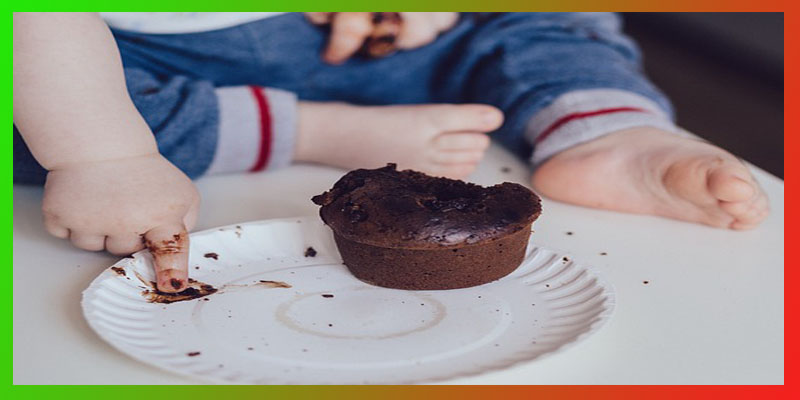Best Organic Baby Food for 9 Month Olds
Best Organic Baby Food-Earth’s Best Organic® is the best-selling baby food in America**. Our 9 month old meals are nutritionally balanced and are made without wheat, soy, or corn. We offer a variety of flavors that your little one will love!
Food for 9 month old
9 month olds question always – what’s for dinner? The answer is usually, “whatever we have in the fridge.” This can often be frustrating because it takes time to figure out what goes together and find healthy options for dinner.
But that doesn’t have to be the case! It’s simply choosing wisely from ingredients you already have on hand, combining them in different ways, and coming up with what we call “fridge-to-table”
When it comes to food for your 9 month old, you want to make sure that they are getting the proper nutrients and vitamins to help them grow. Here are some foods that are good for infants and toddlers:
-Fruits and vegetables: These are a must for your baby’s diet, and you should make sure to include plenty of them in their meals. Try to give them baby-safe fruits and vegetables, like apples and carrots, to minimize the chance of them getting sick.
-Grain-based foods: You should give your baby whole grains, like brown rice, oatmeal, and wheat germ, to help them get the essential nutrients
We should start introducing solid foods to our children from 6 months of age. Breast milk or formula is still their main source of nutrition and should continue to be until they are 12 months old.
The World Health Organization recommends that a child’s diet should include:
– Cereals, vegetables, fruits and legumes
– Meat, fish, eggs and alternatives such as tofu, nuts and seeds
– Milk products such as cheese and yoghurt
– Fats such as butter or vegetable oils
The American Academy of Pediatrics recommends that infants eat iron-fortified baby cereal at age 4 to 6 months. Babies can also have mashed or soft cooked fruit and vegetables, pureed meat, fish, eggs, yogurt, and soft cheese.
A 9 month old baby needs a variety of nutrients for growth and development. The AAP recommends that parents introduce a wide range of foods in the first year of life to help the child develop new tastes and try new textures.
Meal plan for 9 month old baby
It can be tough to come up with a meal plan for a baby, but it’s even harder to stick to it. That’s why we’ve put together a 9-month meal plan that will help you get the most out of your baby’s diet.
A 9 month old baby should be given a variety of foods. They can eat anything that is not too hard and not too soft. They can also eat small pieces of meat, eggs, cheese, yogurt and other dairy products.
- Breakfast – Cereal with milk and fruit juice
- Lunch – Rice and lentils with vegetables
- Dinner- Grilled chicken breast with rice and beans
- Snack – Potato chips (no fat) with dip
- Weekday Meal Plan – 2 meals + 1 snack per day
- Saturday/Sunday Meal Plan – 4 meals + 1 snack per week
lunch ideas for 9 month old
How do I make my lunchbox look cute for my baby? What should I pack for her? How much time do I have to prepare her food before she eats it? Should I feed her at home or take her to school? The choices can seem overwhelming, especially when you only give her a few days before her first day of kindergarten.
You probably already know that the first year of life is full of surprises. While you might enjoy preparing elaborate meals and snacks for him, his little tummy will likely appreciate something simpler. In this article, we share some of our favorite nutritious breakfast, lunch, and dinner ideas for babies 0 to 12 months old.
Make sure he has plenty of opportunities to play and explore. If he enjoys playing with toys, then don’t forget to include them in his meal. Keep in mind that the amount of time you spend cooking does not necessarily mean the same thing in terms of time spent playing. Children under two years old should eat every 3 hours, and older children have slightly less frequent feeding times. Take out a timer and track the number of minutes spent playing.
As your baby grows and develops, so too will both his appetite and ability to tolerate solid foods. Check back often to see whether your picky eater is finally ready to try new foods.
- Egg salad sandwich (this is probably not good for me)
- Peanut butter & jelly sandwich (this is probably okay)
- Chicken nuggets (I don’t eat meat at lunch time)
- Cheeseburger (I’m already getting sick of hamburgers)
- Cheese pizza (I love cheese pizzas)
- Hot dog (no thanks)
- Salisbury steak (never had it before) sorrynotsorry
- Turkey (yup, I never have turkey)
- Salmon (yup, I’ve never had salmon)
- Mango smoothie (diet soda)
- Sushi roll (too expensive)
- Tuna melt (I’ll take some tuna in my salad instead)
- Ham sandwich (ham sandwiches are boring)
- Pizza (can’t stand cheese)
What to feed 9 month old for breakfast
What should I feed my baby? There are so many options out there, from cereal to organic rice pudding and beyond. Which one is right?
Many parents struggle with feeding their babies. From birth, they require proper nutrition to grow properly and develop fully. In addition to providing adequate nourishment, parents also need to ensure that their child gets enough rest.
There are various types of food that you can give to your baby, depending on his age and development stage. Babies between 6 months and 12 months usually don’t eat solid foods. They prefer milk or breastmilk, followed by formula.
How much solid food for 9-month-old
9 months old baby boy wants to eat too much solid food. What should I feed him?
9 month olds are growing very fast and they require a large amount of energy for their growth and development. They also want to explore the world around them and taste every new thing. Solid foods are now considered the main source of nutrition for babies.
Should I Add adding cereal to formula
As babies develop, the type of meal changes from milk or formula to cereals, fruits, meats, vegetables, breads, etc. The problem is that some parents believe that children only need to drink milk until 2 years old. Solid foods begin to appear at 4 months. There is no clear evidence that delaying solid food leads to better health. In fact, it has been shown that premature introduction of solids causes’ poor digestion and increased risk of obesity.













No comments:
Post a Comment